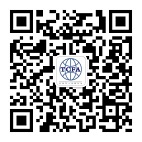1. The aim of the Chinese Finance Association (TCFA) is to promote scholarly exchange among its members and to contribute to the understanding and growth of the Chinese financial system. Through annual meetings, special projects, and regular publications, TCFA seeks to advance the study of the Chinese financial system.
2. Students, scholars and professionals of Finance, Accounting, and other Economic and Management Sciences and others who are interested in the Chinese financial system can apply for TCFA membership. The application is subject to the approval of the TCFA Board of Directors.
3. The President of TCFA is elected each year by its members in the annual meetings, and serves an one-year term. The President may not be reelected consecutively. The President is responsible for the general management of the organization and the execution of resolutions approved by the annual meeting and the Board.
4. TCFA Board of Directors are elected by its members in the annual meetings, and serve an one-year term. The Chairman of the Board is elected by the board members. The board supervises the activities of TCFA, and the Chairman is responsible for coordinating board activities. The President automatically becomes a member of the board while holding the Presidency, but may not serve as the Chairman simultaneously. The Board appoints an Acting President when the President can not exercise his/her duties.
5. A member may be elected the President of TCFA or to TCFA Board of Directors only after being a member for at least a year. This rule does not apply to the charter members who attend the first annual meeting. Exceptions may be made with the consent of the current board.
6. TCFA Members elect the Auditor. The Auditor oversees the use of TCFA funds and serves an one-year term. The Auditor may not be a member of TCFA Board of Directors.
7. Income of TCFA comes from membership dues and contributions. Those who render services to TCFA may receive such compensations, if any, for their services, and such reimbursements for expenses, as may be fixed or determined by the resolution of the Board.
8. Members are not allowed to express opinions on behalf of TCFA without the authorization of the Board of Directors or the plenary meeting of TCFA. Violation may result in termination of membership by the resolution of the Board.
9. TCFA is incorporated in the U.S. and subject to the relevant U.S. laws and regulations. With the consent of two-thirds majority, TCFA may dissolve according to procedures prescribed by law.
10. The bylaws are to be interpreted by the Board of Directors and may be revised with the consent of two-thirds of the votes at the annual meetings.
Amendments to the Bylaws of the Chinese Finance Association
(The following amendments were discussed and passed by members of the Chinese Finance Association on September 24, 1995, in Boston, Massachusettes.)
Amendment 1: The President-Elect of TCFA is elected by its members at the annual meetings. The elected person becomes a member of the Board automatically. The number of Board members, including the President and the President-Elect, remains the same. The President-Elect takes up the Presidency one year hence.
Amendment 2: The President may establish several executive positions to assist him/her in carrying out his/her responsibilities. The officers are nominated by the President. The nominatation is subject to the approval of the Board of Directors by majority consent. The officers can be dismissed by the Board of Directors by majority consent.
Amendment 3: Members who have less than one full year of membership, but wish to be elected to any of the elective positions must declare their intention and file a petition to the Board for a waiver of the one-year membership requirement a certain period of time before the annual meeting is due to take place, in order that the Board has sufficient time to vote on the petition. The length of the period shall be set by the Board of Directors and announced to the members in advance.
(The following amendments are discussed and passed by members of the Chinese Finance Association on August 12. 2001 in New York, NY)
Amendment 4: The Chinese Finance Association will hold its conferences and elections every two years. Elected officials, including the president and the board of directors, have a two-year tenure.
Amendment 5: To be qualified as a candidate for the president, he/she must be a director at present or in the past and is active in the current term.
(The following amendments are discussed and passed by members of the Chinese Finance Association Board on June 25, 2005)
Amendment 6: Once elected, the Board members serve a 2-year-term. Generally, half of the board seats are subject to re-election each year. A Board member has no limit to the total number of terms he/she may serve, if re-elected.
Amendment 7: The President will serve an one-year term. The same person may not serve as President for more than 2 terms, consecutively. The President-Elect will be elected by the members of The Chinese Finance Association. The President-Elect takes up the Presidency one year hence.
Amendment 8: The Accounting Committee is responsible of ensuring the maintenance of sound financial and accounting control at the association. It is independent from the board. It oversees budgeting and finance operation of the organization. The committee is composed of seven members - former TCFA President, President, Chairman of the board, President-elected, CFO, Treasurer, and an outside member who is not currently serving on TCFA board, who is nominated and voted by other six members. Members can be removed by the Committee for "good causes".
Responsibilities of the Accounting Committee include, and not limited to:
(1) Monitor all financial spending.
(2) Appoint an independent accounting firm to perform audits of financial statements and prepare required regulatory tax returns.
(3) Review and approve budget plan submitted by the board, local chapters, and for other special events sponsored by TCFA.
(4) Approve, in advance, any significant expenses related to TCFA activities.


